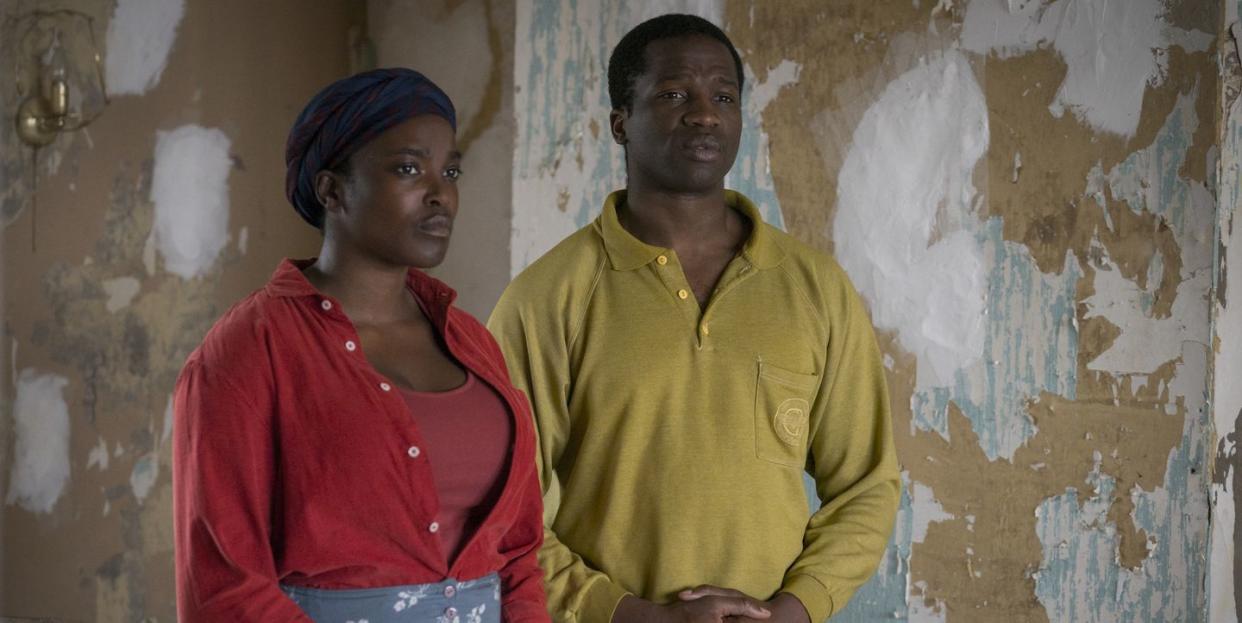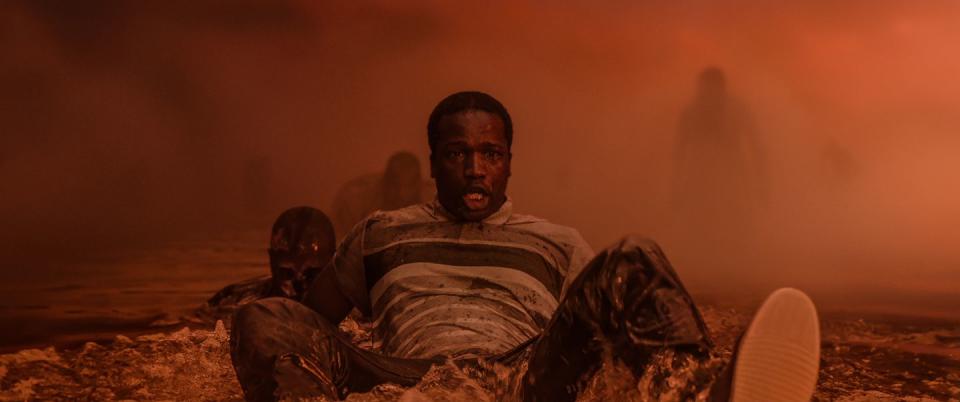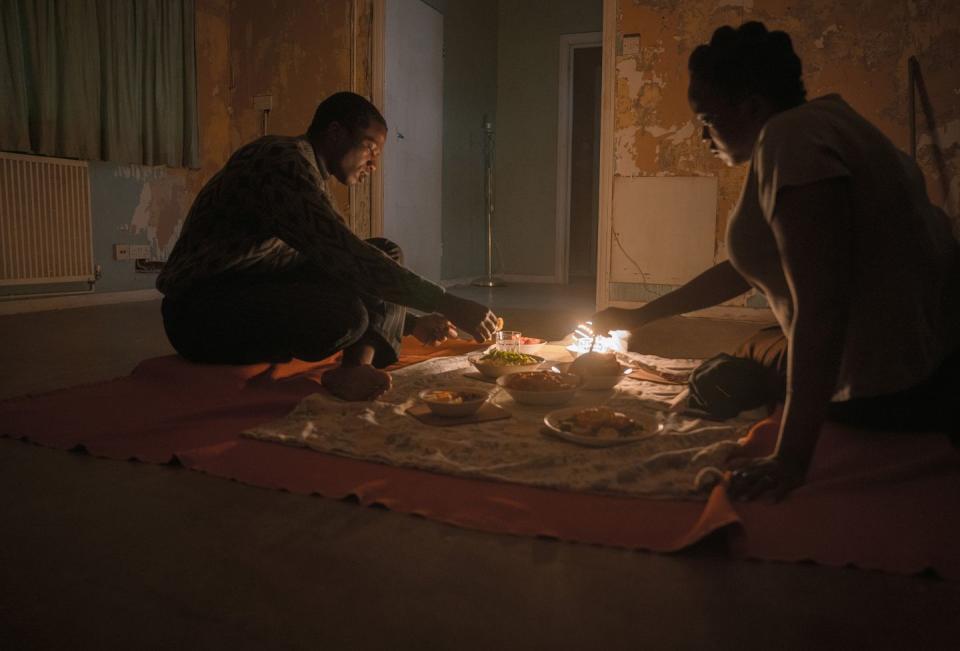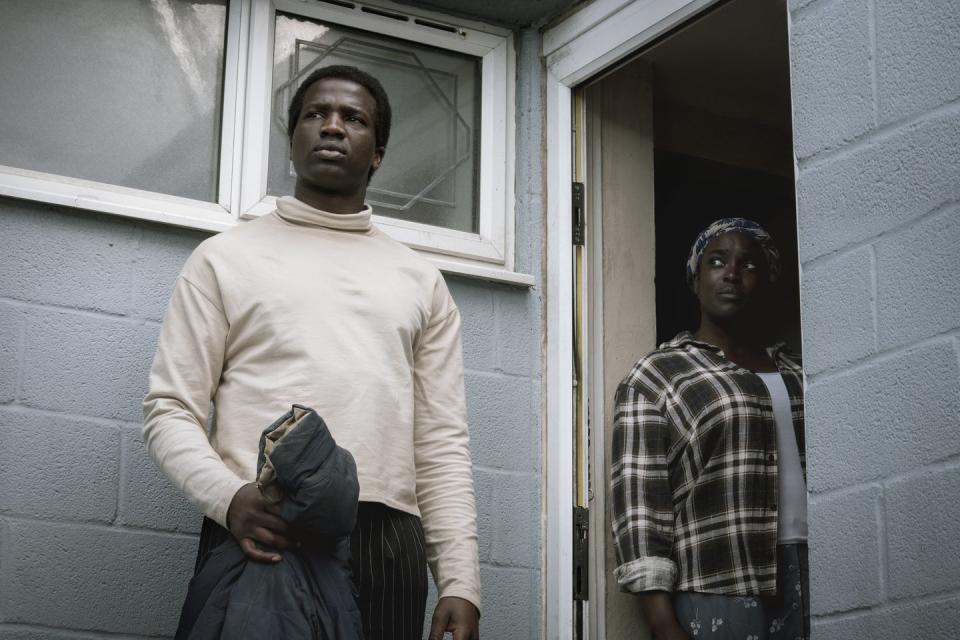'His House' Ending Explained

This piece is just one massive spoiler for the ending of His House
Remi Weekes' brilliant debut feature film His House was the connoisseur's choice of Halloween movie this year: thoughtful, genuinely spooky, timely and inventive, it puts a new spin on the haunted house genre to tell a story about belonging and dealing with trauma.
Rial and Bol's final confrontation with the Beast, which has been tormenting them with visions and visitations by the ghosts of their journey to the UK, is an ending which is open to interpretation, though. Fortunately, Weekes talked us through his version of what it all means.

Lets recap: after days and nights of increasingly vivid and disorientating hauntings, firstly by the figure of a little girl – Nyagak, who it's revealed Bol abducted from her mother in order to force himself and Rial onto a bus heading away from their home in South Sudan and its violence – and later by a creature Rial calls "the witch" and "the Beast". The Beast wants Bol's life, and says he will exchange it for Nyagak's. Bol accepts, but before The Beast can kill him Rial stabs him in the neck. The Beast is vanquished.
The next day, caseworkers come round to check on the house, having seen the state it was in after Bol's attempts to get at the source of the ghostly visions with a hammer. The walls are all polyfilla'd in, the holes through which the ghosts had peered now shut up for good. Things look rosy for Rial and Bol in their new life in the UK. We do see, though, that the visions haven't left them completely. From one room, Nyagak and other people stare at Rial and Bol; they and dozens of others stare back, apparently not afraid anymore.
So, what does it all mean? The Beast, Weekes says, represents how "the suppression of our traumas or our past can often only make the pain more powerful". Bol spends His House attempting to forget what he did, and goes out of his way to follow the caseworkers' instructions to fit in: he goes to a working men's club and sings along with Stoke fans' Peter Crouch chants; he starts eating with a knife and fork despite Rial's distaste for it ("All I can taste is metal"); he even buys clothes to match a happy white family in an in-store advert.
For Bol, the Beast feeds on his shame and guilt over surviving the crossing and making it to the UK. He attempts to outrun it by destroying any link to his old life, but, Weekes says: "When you suppress your past, you also suppress your history and the people that are important to you."
Weekes adds that Bol's emotional repression is a particularly masculine response to trauma.

"Part of why it’s called His House is [there's] this feeling for men, [that] we have to be the ones to shoulder burdens but not admit to how much pain they can cause us. I guess his character reflected a need to suppress our emotions in the hope that by suppressing them they’ll just go away, when usually the opposite happens."
It's particularly significant that Rial is the one to cut the Beast's throat when it's on the brink of overwhelming Bol. She had threatened to return to the life they knew in South Sudan, her guilt and shame at surviving dragging her backwards rather than, as with Bol, spurring her to run onward.
"She was someone who wasn't ready to let go, wasn't ready to move on, and the ending for her was about accepting the need to move on with her life and to forgive herself too. [For] both of them it was about forgiveness but from different perspectives."
Bol has to forgive himself for using Nyagak, accept that her death wasn't his fault, and try to reconcile owning their Sudanese heritage and culture with building a new life in the UK.
"I feel like the ending is very much about having to accept everything about your past and having to learn to, I guess, forgive yourself, and to acknowledge your past as well as being ready to move on," Weekes says.

There's a defiant edge to the way Rial and Bol address Mark, their caseworker, and seem to speak directly to us at home, right down the barrel of the camera.
"I do that a lot," Weekes says. "The camera tends to be inside the conversation rather than viewing it from the outside. I just like the intimacy of that, I like the audience to be within the characters' gaze rather than looking at it from the outside. With topics like this, it was important for me to feel like you're always with the characters rather than seeing it from a distance."
Lastly, what about the rooms full of people who aren't really there?
"I might leave that one open, actually," he laughs.
Like this article? Sign up to our newsletter to get more articles like this delivered straight to your inbox
Need some positivity right now? Subscribe to Esquire now for a hit of style, fitness, culture and advice from the experts
You Might Also Like

